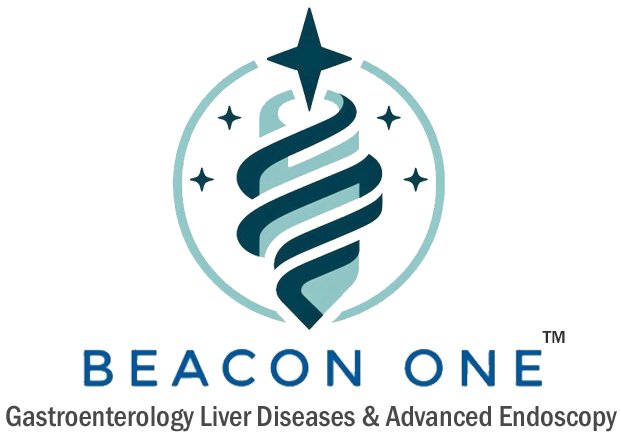Fighting Gall Bladder Cancer: Navigating Gall Bladder Cancer Treatment in Nagpur
Gall bladder cancer, though relatively uncommon, is a serious disease that requires timely and expert medical care. The gallbladder, a small organ located beneath the liver, stores and releases bile, a fluid essential for digestion. Cancer in this organ can be challenging to detect in its early stages, often presenting with vague symptoms. However, for patients in Nagpur, accessing advanced diagnostics and comprehensive Gall Bladder Cancer Treatment is possible through dedicated healthcare professionals.
Recognizing the Signs: Symptoms of Gall Bladder Cancer
In its initial stages, gall bladder cancer may not cause any noticeable symptoms. As the disease progresses, signs may appear and can sometimes be mistaken for other, less serious conditions. Common symptoms that should prompt a thorough medical evaluation include:
- Jaundice (yellowing of the skin and whites of the eyes), often caused by a blockage of the bile ducts
- Abdominal pain, particularly in the upper right side
- Bloating or swelling of the abdomen
- Unexplained weight loss
- Loss of appetite
- Nausea and vomiting
If you experience persistent or concerning symptoms, it is vital to consult a Gastroenterologist or Hepatologist in Nagpur for a proper diagnosis.
The Diagnostic Pathway: Identifying Gall Bladder Cancer
Diagnosing gall bladder cancer involves a combination of approaches:
- Imaging Tests: Ultrasound is often the initial imaging technique used to visualize the gallbladder and detect any abnormalities. Further detailed imaging, such as CT scans and MRI, helps to determine the extent of the cancer and whether it has spread.
- Blood Tests: Liver function tests and tests for tumor markers may be performed, although these are not definitive for diagnosis.
- Endoscopy (ERCP): In cases where the bile ducts may be involved or blocked, an Endoscopy Specialist may perform an ERCP (Endoscopic Retrograde Cholangiopancreatography). This procedure allows visualization of the bile ducts using an endoscope and X-rays. It can help identify blockages caused by the tumor and may allow for the collection of tissue samples (biopsy) or bile for analysis.
- Biopsy: A definitive diagnosis of cancer requires a biopsy, where a small sample of tissue is obtained and examined under a microscope by a pathologist. This may be done during surgery or, in some cases, guided by imaging or during an ERCP.
A Collaborative Effort: The Multidisciplinary Team in Nagpur
Effective Gall Bladder Cancer Treatment in Nagpur is best managed by a multidisciplinary team of specialists who work together to provide comprehensive care. This team typically includes:
- Surgical Oncologist: Specializes in performing surgery to remove the cancer. Surgery is often the primary treatment for early-stage gall bladder cancer.
- Medical Oncologist: Designs and administers chemotherapy regimens.
- Radiation Oncologist: Plans and delivers radiation therapy.
- Gastroenterologist or Hepatologist: Involved in diagnosis, staging, managing symptoms like jaundice (often requiring endoscopic intervention like stenting by an Endoscopy Specialist), and addressing any underlying Liver Diseases or liver-related complications that may arise during treatment.
- Radiologist: Interprets imaging tests.
- Pathologist: Analyzes biopsy samples.
This collaborative approach ensures that all aspects of the patient’s condition are considered, leading to a tailored and effective treatment strategy.
Tailoring Treatment: Options for Gall Bladder Cancer in Nagpur
The Gall Bladder Cancer Treatment plan is highly individualized, depending on the stage of the cancer, the patient’s overall health, and other factors. Treatment options may include:
- Surgery: For localized, early-stage cancer, surgery to remove the gallbladder (cholecystectomy) is the primary treatment. In more advanced but still resectable cases, a more extensive surgery involving removal of part of the liver and surrounding lymph nodes may be necessary.
- Chemotherapy: Anti-cancer drugs are used to kill cancer cells or slow their growth. Chemotherapy may be used before or after surgery, or for advanced or metastatic disease.
- Radiation Therapy: High-energy rays are used to target and destroy cancer cells. Radiation therapy may be used alone or in combination with chemotherapy, particularly for locally advanced cancers.
- Palliative Care: For advanced cancers that cannot be cured, the focus shifts to palliative care, which aims to manage symptoms, improve quality of life, and provide support to the patient and their family. This may involve pain management, nutritional support, and procedures like endoscopic stenting (performed by an Endoscopy Specialist) to relieve jaundice caused by bile duct obstruction.
The close proximity of the gallbladder to the liver means that gall bladder cancer can affect liver function. Therefore, the expertise of a Hepatologist is often crucial in managing potential liver complications and ensuring the best possible outcomes for patients with Liver Diseases related to or affected by gall bladder cancer.
Accessing Specialized Care in Nagpur
Nagpur is home to hospitals and cancer centers equipped with the technology and specialists required for comprehensive Gall Bladder Cancer Treatment. Patients have access to advanced imaging, pathology services, surgical oncology, medical oncology, radiation oncology, and interventional Endoscopy services, including ERCP, provided by experienced Gastroenterologists, Hepatologists, and Endoscopy Specialists.

